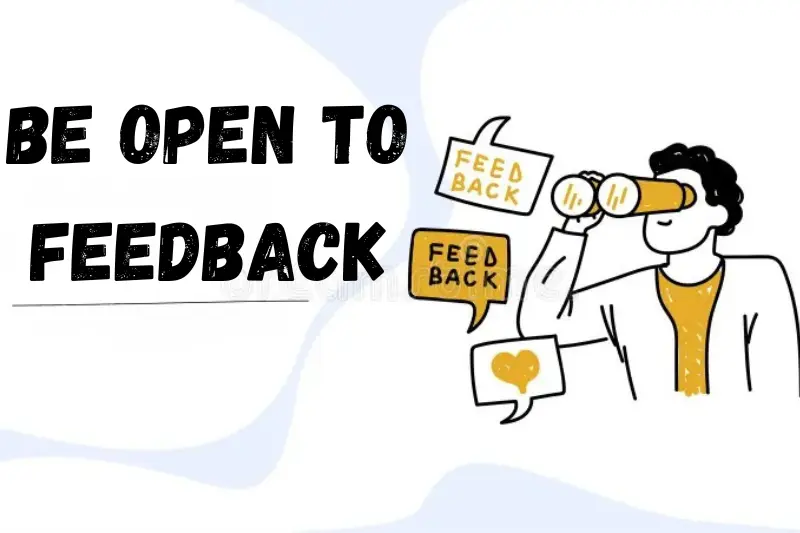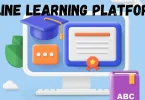Are you a Millennial born between 1982 and 2000? If so, you might have found that many people—whether professors, family members, or potential employers—are unsure about what exactly you want from your career. But here’s the reality: you probably have a pretty good idea of what you want. Maybe you value a flexible schedule, a career that allows you to make a positive impact, or perhaps you’re focused on earning a stable paycheck with opportunities for career growth.
Regardless of what’s most important to you, the truth is that achieving your career goals is about more than just having a vision. It takes hard work, perseverance, and smart planning. To help guide you along the way, here are 18 practical career guidance and tips that will help you launch or advance your career with confidence.
1. Clarify Your Career Goals

Before diving into a career, take the time to clearly define what you want to achieve, both in the short and long term. Consider essential factors like work-life balance, job stability, salary expectations, and opportunities for professional growth. A short-term goal could be gaining specific experience or a new skill, while long-term goals might include moving into a leadership role or achieving a particular level of income. Understanding your goals will help you make informed decisions and avoid wasting time on opportunities that don’t align with your aspirations.
2. Network Actively
Networking isn’t just about collecting business cards; it’s about building genuine, valuable relationships. Attending industry events, professional conferences, or virtual meetups can open the door to new job opportunities and collaborations. Engage with people in your field—whether it’s online or face-to-face—and don’t be afraid to reach out to others for advice or mentorship. Networking is a powerful tool that will introduce you to new ideas, career insights, and key industry connections that could support your career progression.
3. Upskill and Reskill Regularly
The job market is always evolving, and what’s in demand today may not be in demand tomorrow. To stay competitive, you must commit to lifelong learning. Upskilling refers to enhancing your existing abilities, while reskilling involves learning entirely new competencies. Take advantage of online courses, certifications, and workshops to stay current with industry trends and technological advancements. By actively investing in your education, you’ll position yourself as a highly marketable candidate and demonstrate to employers that you’re proactive about staying relevant in your field.
4. Embrace Flexibility
As a Millennial, you likely value flexibility in your work environment. Whether that means the ability to work remotely, having flexible working hours, or the opportunity to design your own schedule, prioritize employers who offer flexibility. Research shows that flexible work options not only improve job satisfaction but also increase productivity. When evaluating potential job offers, ensure that the company’s work culture aligns with your personal preferences regarding work-life balance.
You may also like to read this:
Best 18 Educational Apps For Students You Need To Try
12 Best Study Tips For College Students To Boost Success
14 Best Online Learning Platforms For Career And Skills
Latest Education News: AI In Education And Future Trends
5. Find a Mentor
Having a mentor can be one of the most rewarding aspects of career development. A mentor can guide you through tricky situations, offer career advice, and provide valuable insights based on their own experiences. Whether formal or informal, mentorship is an invaluable relationship that will help you grow both personally and professionally. Be open to learning from others, and don’t hesitate to ask for guidance when needed. You’ll find that a mentor’s advice can help you avoid mistakes and reach your career goals faster.
6. Prioritize Your Mental Health
Career success is important, but maintaining your mental and physical well-being is paramount. Overworking, stress, and burnout can negatively affect your productivity and decision-making abilities. Set boundaries to maintain a healthy work-life balance. Engage in self-care practices such as exercise, mindfulness, and taking regular breaks. By prioritizing your mental health, you’ll not only perform better in your career but also lead a more fulfilling and balanced life.
7. Don’t Be Afraid to Switch Careers
If you’re feeling unfulfilled or stagnant in your current job, don’t be afraid to explore new career paths. Many Millennials have made successful career pivots, and today’s job market encourages individuals to redefine traditional career trajectories. Switching careers may require you to acquire new skills or certifications, but it can ultimately lead to a more satisfying and purpose-driven professional life. If your current job no longer aligns with your passions or values, it’s worth exploring opportunities in other industries that might spark your enthusiasm.
8. Build a Personal Brand
In today’s digital world, personal branding is key to standing out in a crowded job market. A personal brand is how you present yourself online, including your social media presence, blog, or portfolio. Platforms like LinkedIn, Twitter, and even Instagram can be powerful tools to showcase your expertise and build a professional reputation. By sharing industry insights, engaging in relevant conversations, and highlighting your accomplishments, you create a unique online identity that will make you more attractive to employers and clients.
9. Be Open to Feedback

Feedback is an essential part of career growth. Both positive and constructive feedback can help you understand your strengths and areas for improvement. Seek out regular feedback from colleagues, supervisors, and mentors to enhance your performance. Don’t take criticism personally; instead, use it as an opportunity to refine your skills and become better at your job. A willingness to receive and act on feedback shows maturity and a desire to improve, which is essential for career advancement.
10. Set Achievable Milestones
It’s easy to get overwhelmed by long-term career goals, so break them down into smaller, manageable milestones. Set realistic, measurable objectives that will keep you on track and motivated. For example, if you aim to move into a managerial position within five years, you might break that down into milestones such as completing leadership training or managing a team for the first time. Celebrate your successes along the way to stay motivated and focused on your journey.
11. Seek Out Leadership Opportunities
Even if you’re just starting out in your career, seek opportunities to demonstrate leadership qualities. Volunteering for projects, taking the initiative on assignments, or mentoring junior team members can show that you have the skills and mindset necessary for leadership. Leadership experience is highly valued by employers, and taking on these roles early on can help you stand out and position yourself for future promotions.
12. Research Employers Thoroughly
Before committing to a job, do your research to ensure the company’s values align with your own. Look into their workplace culture, mission, and employee reviews to gain insight into what it’s like to work there. A good cultural fit will enhance your job satisfaction and increase your chances of long-term success. Employers who prioritize diversity, sustainability, and employee well-being are often more aligned with Millennial values, making them a great choice for a fulfilling career.
13. Learn to Negotiate
Negotiation is an essential skill in the professional world. Whether you’re discussing salary, benefits, or job responsibilities, don’t shy away from negotiating for what you deserve. Know your worth, research industry standards, and be prepared to advocate for yourself. A strong negotiator not only secures better compensation but also sets the tone for future conversations about career growth and opportunities.
14. Leverage Your Strengths
Identify your unique skills and leverage them to stand out in the workplace. Whether you excel at creative problem-solving, strategic thinking, or communication, use your strengths to make a meaningful contribution to your team or organization. By focusing on what you do best, you’ll increase your value and become an indispensable part of your company.
15. Stay Organized and Focused
Organization is key to managing multiple tasks, deadlines, and responsibilities. Use digital tools like project management apps, calendars, and to-do lists to keep track of everything. Staying organized helps you maintain focus and reduces stress, allowing you to stay on top of your work and meet goals efficiently.
16. Seek Work That Aligns with Your Values
As a Millennial, you might prioritize working for companies that share your values, such as sustainability, diversity, and social responsibility. Look for employers who are committed to causes that resonate with you, as this can provide a greater sense of purpose and job satisfaction. Finding work that aligns with your values will lead to more fulfillment in your professional life.
17. Embrace Failure as a Learning Opportunity
No one’s career journey is free from setbacks. Embrace failure as part of the learning process. Whether it’s a missed opportunity or a failed project, analyze what went wrong and use those lessons to improve. Failure is an opportunity to grow stronger and develop new strategies for future success. Approach it with resilience and determination.
18. Stay Persistent and Resilient
Lastly, career growth is rarely linear. There will be challenges, setbacks, and disappointments along the way. The key is to stay persistent and resilient in the face of adversity. Keep your long-term goals in mind, learn from your experiences, and never give up. Consistent effort and adaptability will eventually lead to success in your career.
Conclusion
In conclusion, achieving career success as a Millennial requires much more than just having a vision. By implementing these career guidance and tips, you can take charge of your career journey, maximize your potential, and achieve your professional goals.
Whether you’re just starting out or looking to advance, these strategies will help you stay on track and navigate the ever-changing job market. Stay focused, be proactive, and most importantly, don’t forget to enjoy the journey!
FAQs
1. How do I choose the right career path?
To choose the right career, start by identifying your interests, strengths, and values. Research different industries, and consider what excites you and aligns with your long-term goals. You can also take career assessments to help you narrow down options. Gaining hands-on experience through internships or volunteering can offer valuable insights and help you make an informed decision.
2. What should I focus on during my first job search?
When job hunting for the first time, focus on building a strong, tailored resume and a professional LinkedIn profile. Apply to jobs that match your skills and interests, even if they’re entry-level positions. Don’t get discouraged by rejections—every application and interview is a learning experience. Additionally, try to expand your network and reach out to others in your field to uncover hidden opportunities.
3. How can I develop a growth mindset?
A growth mindset involves believing that skills and abilities can improve with effort and perseverance. Embrace challenges and view mistakes as learning opportunities rather than failures. Actively seek feedback from others, and use it to grow. Regularly reflect on your progress, and stay open to learning new things to continually expand your knowledge and abilities.
4. How important is networking?
Networking is vital for career advancement. Building relationships with industry professionals, peers, and mentors can open doors to new opportunities, provide advice, and help you stay informed about industry trends. Attend industry events, conferences, and online networking sessions. Use LinkedIn and other platforms to stay connected and engage in meaningful conversations within your field.
5. How can I gain experience without a full-time job?
There are several ways to gain relevant experience even without a full-time job. Internships, freelancing, part-time roles, and volunteering are excellent ways to build your resume and acquire industry knowledge. Side projects or personal initiatives can also help showcase your skills and allow you to build a portfolio to present to future employers.




